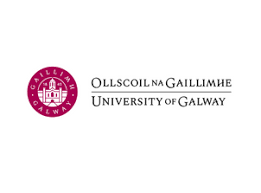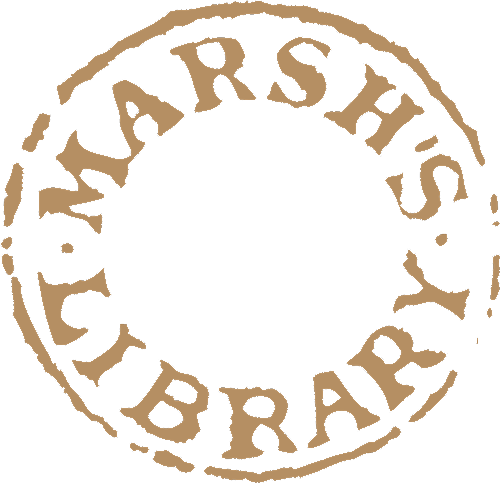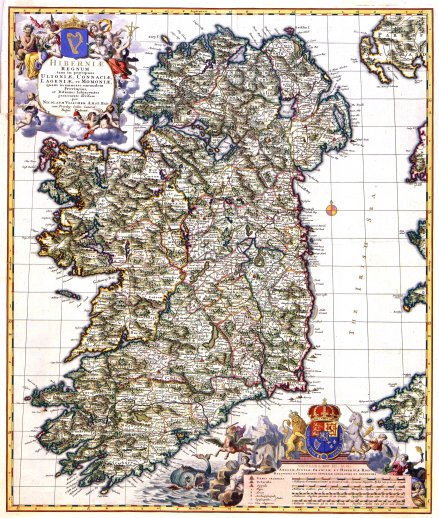6th Annual Tudor and Stuart Ireland Interdisciplinary Conference
Aug 19-20, 2016

Evan Bourke and Bronagh McShane on the registration desk
The 6th Annual Tudor and Stuart Ireland Conference took place at NUI Galway on Friday 19 and Saturday 20 August 2016. This year’s conference welcomed over 80 delegates attending over both days of the conference from institutions across Ireland and beyond. The programme featured more than 40 research papers on a variety of topics, from religious history, women’s history and Shakespeare, to early modern Irish law, book history and the Irish abroad. The programme also featured two special panel sessions; ‘Shakespeare and Ireland’ and a session in honour of Professor Steven Ellis. Plenary addresses were delivered by Professor Mary O’Dowd (QUB) and Professor Andrew Hadfield (University of Sussex).

The first day of the conference opened with a welcome address by Professor Daniel Carey, director of the Moore Institute at NUI Galway. This was followed by a dynamic programme of sessions featuring new research presented in thematic 1.5 hour sessions. The topic of papers were representative of the broad spectrum of specialities that dominate the study of early modern Ireland. These included papers on collegiate churches and Galway’s early modern Augustinian foundations, political pamphlets, the episcopate of the Established Church in the wake of the Reformation, early modern Irish women, kerns and politico-military history, as well as themes such as contagion and capitalism in early modern Ireland. After lunch, a special panel session on ‘Shakespeare and Ireland’ featured stimulating presentations by Dr Naomi McAreavey (UCD), who discussed performances of Shakespeare on the seventeenth century Irish stage, and Emer McHugh (NUIG), who gave an insightful overview of Shakespeare performances in Ireland in 2016. Afternoon panel sessions included papers such as Dr David Heffernan (Ind.) ‘The “composition for cess” controversy and the position of the Old English in mid- Elizabethan Ireland, c.1575-84’, Ms Alix Chartrand (Cambridge) ‘Tories and thugs: the impact of seventeenth-century struggles against Irish banditry on India’ and Dr Felicity Maxwell (NUIG) ‘Dorothy Moore’s Irish connections: Protestant networking and social critique in the 1640s’.
The first day of the conference concluded with Professor Mary O’Dowd’s plenary address on age as a useful category of analysis, followed by a conference dinner at Kirby’s Restaurant, formerly the site of a seventeenth-century Dominican convent, which provided delegates with opportunities to network.

Prof. Mary O’Dowd (QUB) being introduced by Prof. Marian Lyons (Maynooth University
The second day of the conference commenced with a special panel session in honour of Professor Steven Ellis, internationally recognised historian of the Tudor period, who recently retired from the Discipline of History at NUI Galway. Presentations were delivered by Kieran Hoare (NUIG), Dr Gerald Power (Metropolitan University, Prague) and Dr Ruth A. Canning (UCC). This special panel session was followed by seven thematic sessions which featured twenty-one research which included papers such as Dr Brian MacCuarta (Archivum Romanum Societatis Iesu) ‘An Irish layman in Rome in the mid-1590s’, Professor Caroline Newcombe (Southwestern University, United States) ‘How early Irish marital property law influenced the end of Brehon Law’, Dr John Bergin (QUB) ‘The career of Dennis Molony (1650-1726), an Irish Catholic lawyer and agent in London’, Dr Jason McElligott (Marsh’s Library) ‘Early modern female book owners: the evidence from Ireland’s first public library’, Dr Willy Maley (Glasgow) ‘Double Dutch: the Boate brothers and Ireland’, and Dr John Cunningham (Exeter/TCD) ‘The apothecary in early modern Ireland’. Proceedings concluded with a plenary address delivered by Professor Andrew Hadfield on ‘Edmund Spencer the Less among the Jacobites’.
Conference proceedings have been disseminated in the form of podcasts, which can be downloaded, shared, and played for free through iTunes and SoundCloud. Podcasts from Tudor & Stuart Ireland conferences also form an important corpus of early modern material presented through www.historyhub.ie, a major digital humanities project based out of the School of History, University College Dublin. Links to podcasts from this and other Tudor & Stuart Ireland conferences, as well as past programmes and paper abstracts, are available visiting the conference series website, www.tudorstuartireland.com.

The Sixth Annual Tudor & Stuart Ireland Interdisciplinary Conference was generously supported by the President’s Award for Research Excellence (awarded to Prof. Steven Ellis), NUI Galway, the School of Humanities, NUI Galway, the Moore Institute, NUI Galway, the Discipline of History, NUI Galway and the Society for Renaissance Studies.
The Sixth Annual Tudor and Stuart Ireland Conference was organised by Evan Bourke (NUIG), Dr Jeffrey Cox (UCD), Carla Lessing (NUIG) and Dr Bronagh McShane (NUIG).
Conference Twitter account: @TudorStuartIre
Conference Hashtag: #TSINUIG16
For more information about the Tudor & Stuart Conference series, or to contact the advisory committee visit our website at www.tudorstuartireland.com
Report by Dr Bronagh McShane (NUIG) and Dr Jeffrey Cox (UCD)














